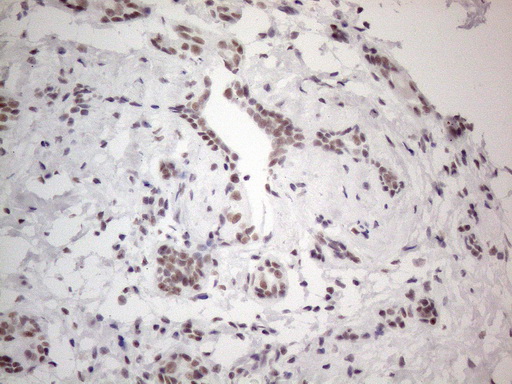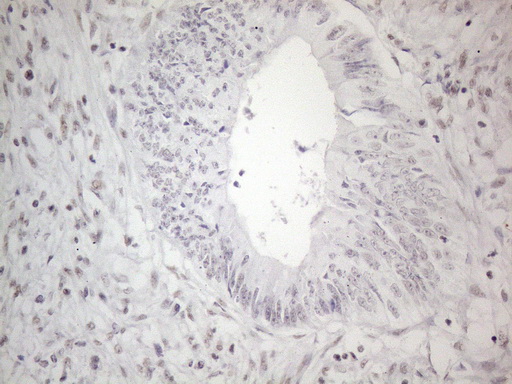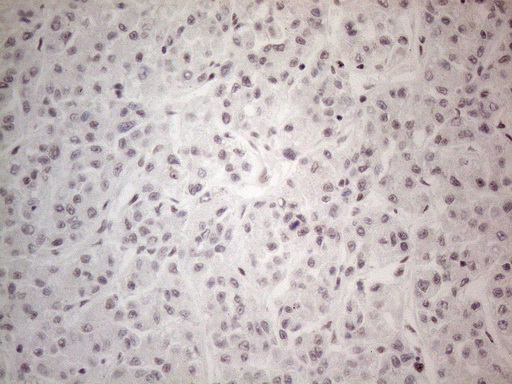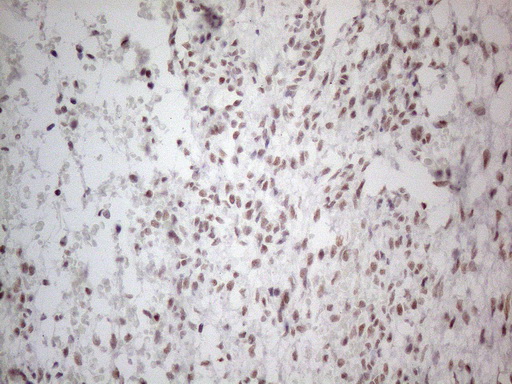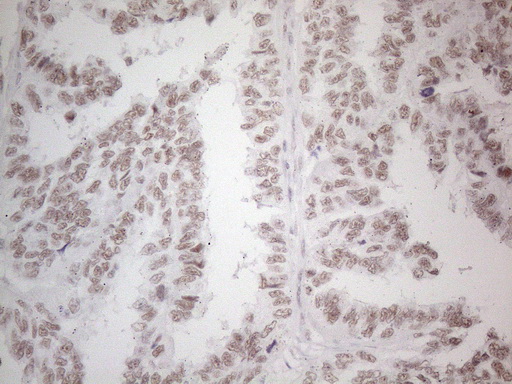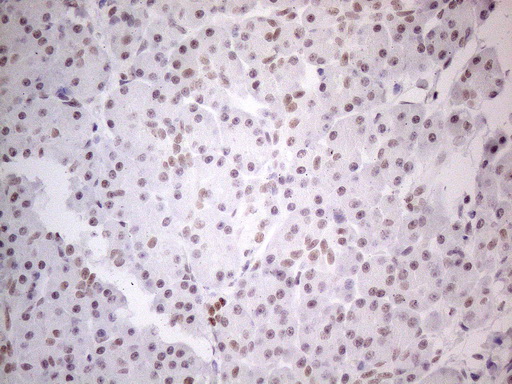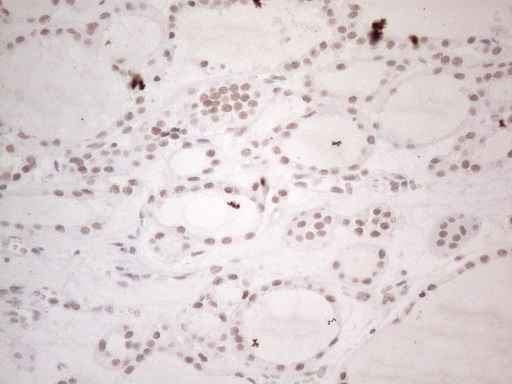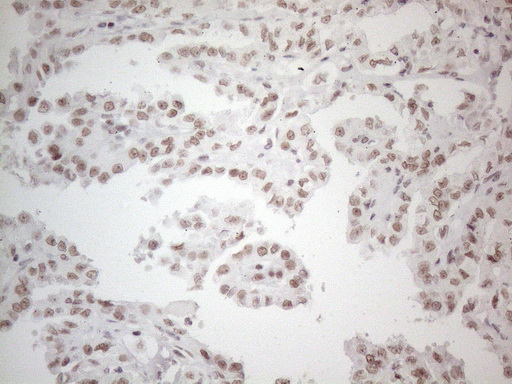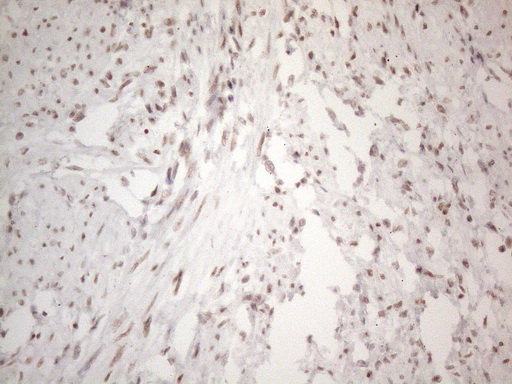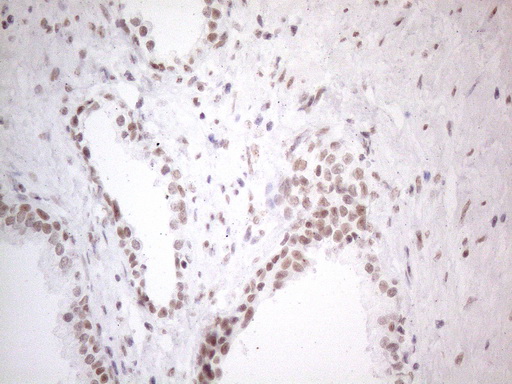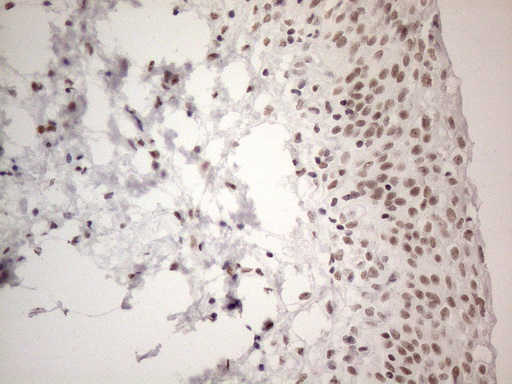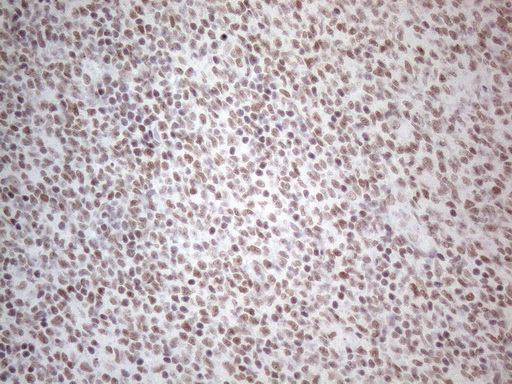NR2C2 Mouse Monoclonal Antibody (Biotin conjugated) [Clone ID: OTI2H2]
CAT#: TA807271AM
NR2C2 mouse monoclonal antibody, clone OTI2H2 (formerly 2H2), Biotinylated
Conjugation: Unconjugated HRP
View other "OTI2H2" antibodies (4)
Need it in bulk or conjugated?
Get a free quote
CNY 3,990.00
CNY 300.00
CNY 1,430.00
CNY 2,900.00
CNY 6,650.00
CNY 4,840.00
Specifications
| Product Data | |
| Clone Name | OTI2H2 |
| Applications | IHC, WB |
| Recommend Dilution | WB 1:2000, IHC 1:150 |
| Reactivity | Human, Mouse, Rat |
| Host | Mouse |
| Clonality | Monoclonal |
| Immunogen | Human recombinant protein fragment corresponding to amino acids 1-241 of human NR2C2(NP_003289) produced in E.coli. |
| Formulation | PBS (pH 7.3) containing 1% BSA, 50% glycerol and 0.02% sodium azide. |
| Concentration | 0.5 mg/ml |
| Purification | Purified from mouse ascites fluids or tissue culture supernatant by affinity chromatography (protein A/G) |
| Conjugation | Biotin |
| Storage Condition | Store at -20°C as received. |
| Predicted Protein Size | 67.2 kDa |
| Gene Name | nuclear receptor subfamily 2 group C member 2 |
| Database Link | |
| Background | This gene encodes a protein that belongs to the nuclear hormone receptor family. Members of this family act as ligand-activated transcription factors and function in many biological processes such as development, cellular differentiation and homeostasis. The activated receptor/ligand complex is translocated to the nucleus where it binds to hormone response elements of target genes. The protein encoded by this gene plays a role in protecting cells from oxidative stress and damage induced by ionizing radiation. The lack of a similar gene in mouse results in growth retardation, severe spinal curvature, subfertility, premature aging, and prostatic intraepithelial neoplasia (PIN) development. Alternative splicing results in multiple transcript variants encoding different isoforms. [provided by RefSeq, Apr 2014] |
| Synonyms | TAK1; TR4 |
| Reference Data | |
| Protein Families | Druggable Genome, Nuclear Hormone Receptor, Transcription Factors |
Documents
| Product Manuals |
| FAQs |
| SDS |
Resources
| 抗体相关资料 |
Other Versions
| SKU | Description | Size | Price |
|---|---|---|---|
| CF807271 | Carrier-free (BSA/glycerol-free) NR2C2 mouse monoclonal antibody, clone OTI2H2 (formerly 2H2) |
CNY 3,999.00 |
|
| TA807271 | NR2C2 mouse monoclonal antibody, clone OTI2H2 (formerly 2H2) |
CNY 1,999.00 |
|
| TA807271BM | NR2C2 mouse monoclonal antibody, clone OTI2H2 (formerly 2H2), HRP conjugated |
CNY 3,990.00 |
|
| TA807271S | NR2C2 mouse monoclonal antibody, clone OTI2H2 (formerly 2H2) |
CNY 800.00 |


 United States
United States
 Germany
Germany
 Japan
Japan
 United Kingdom
United Kingdom
 China
China


